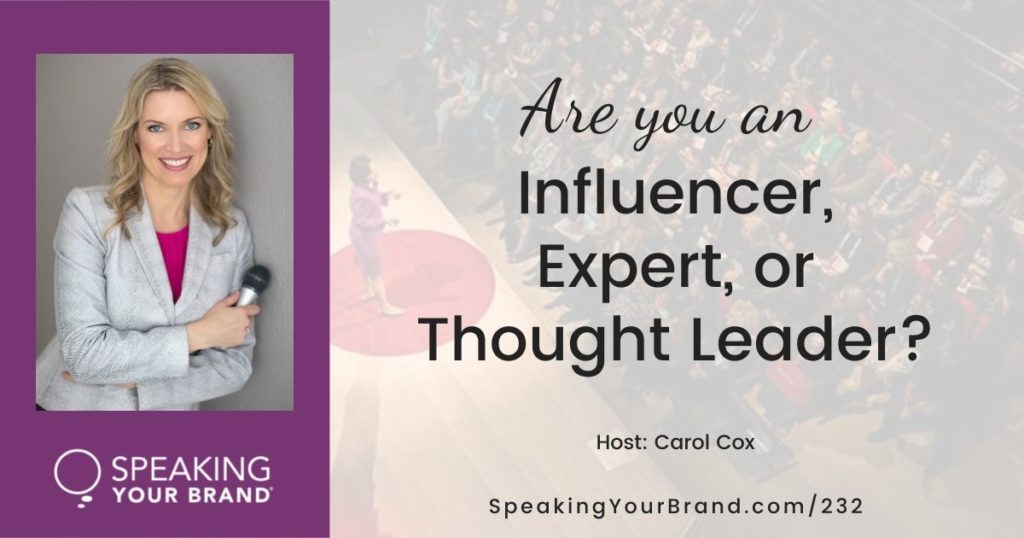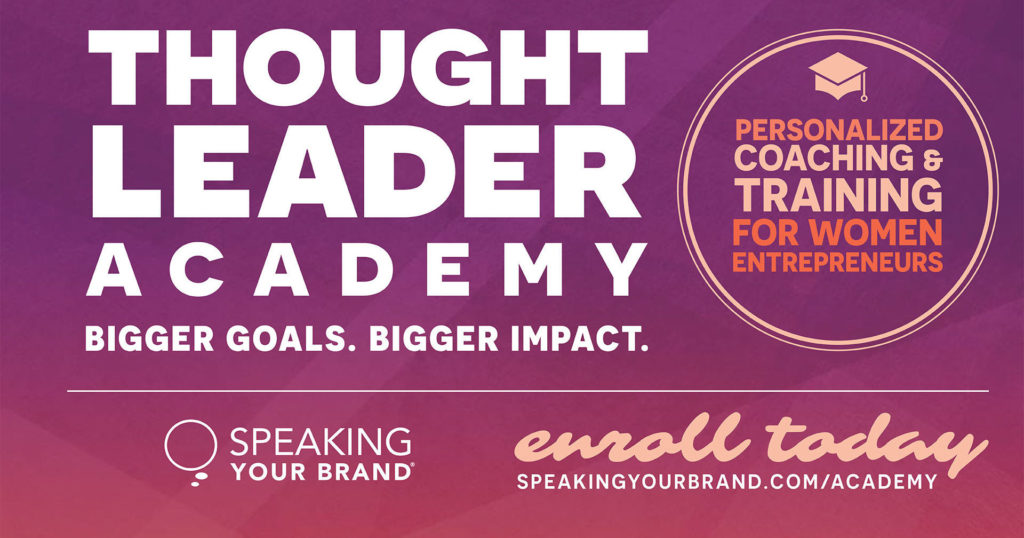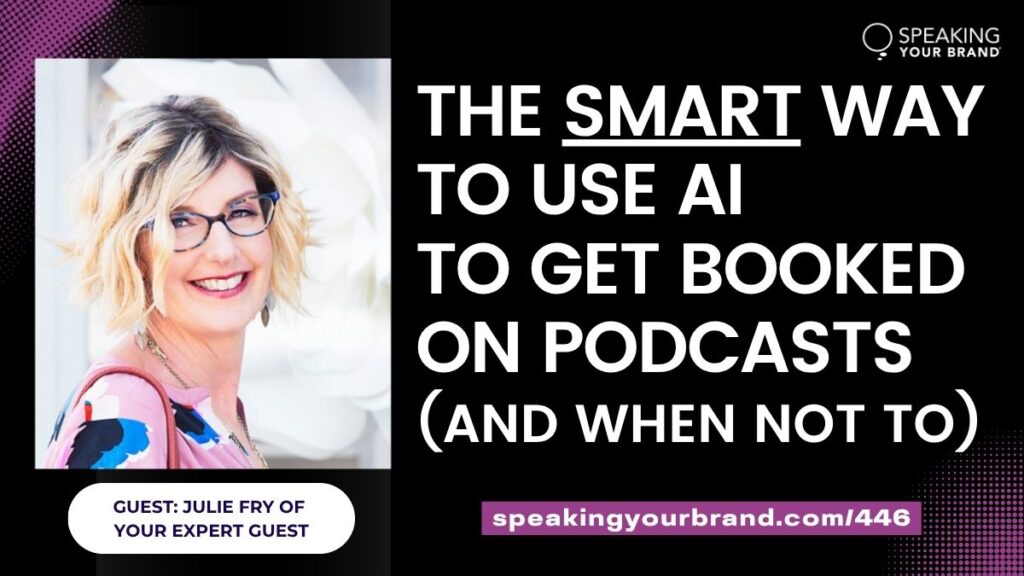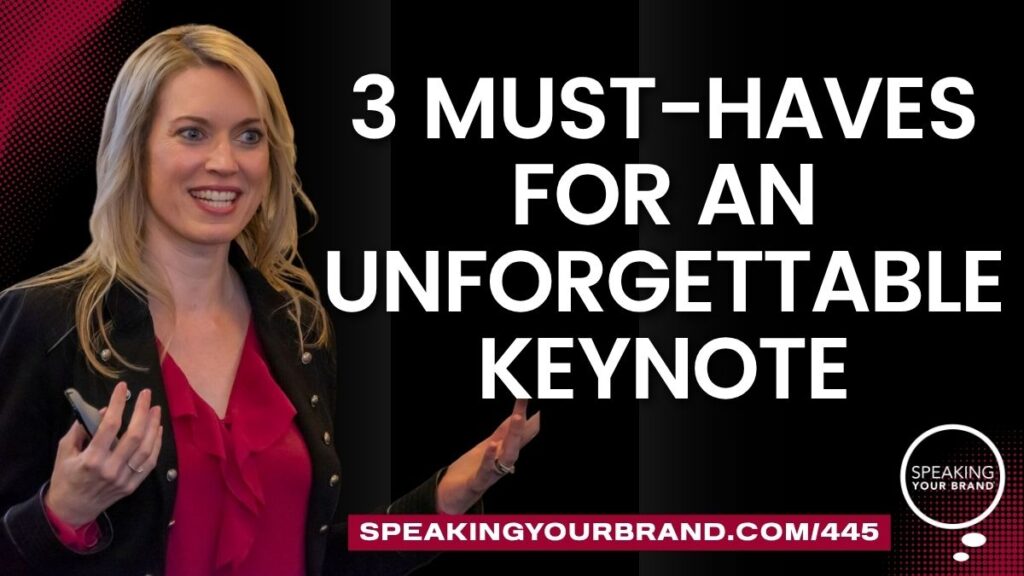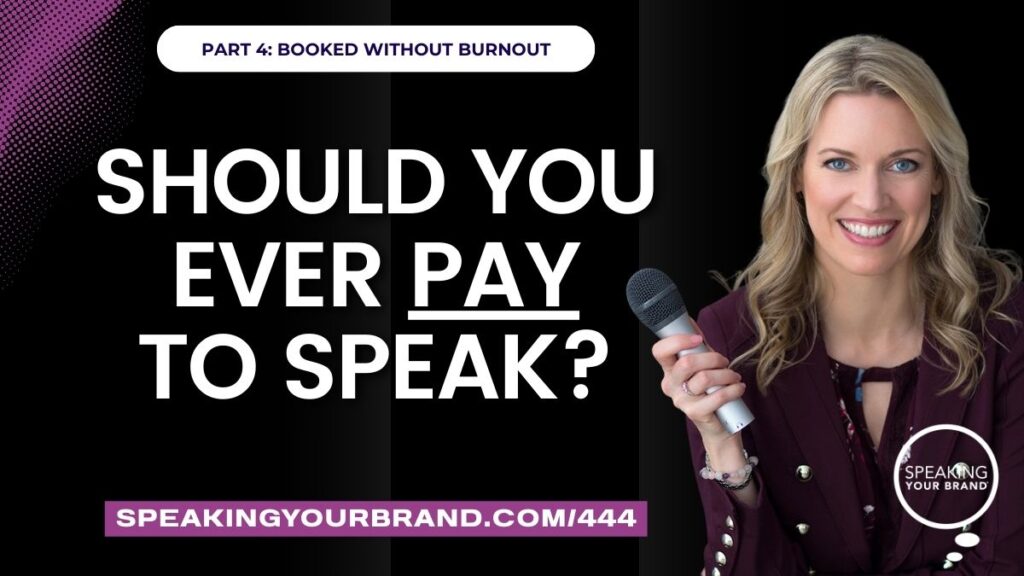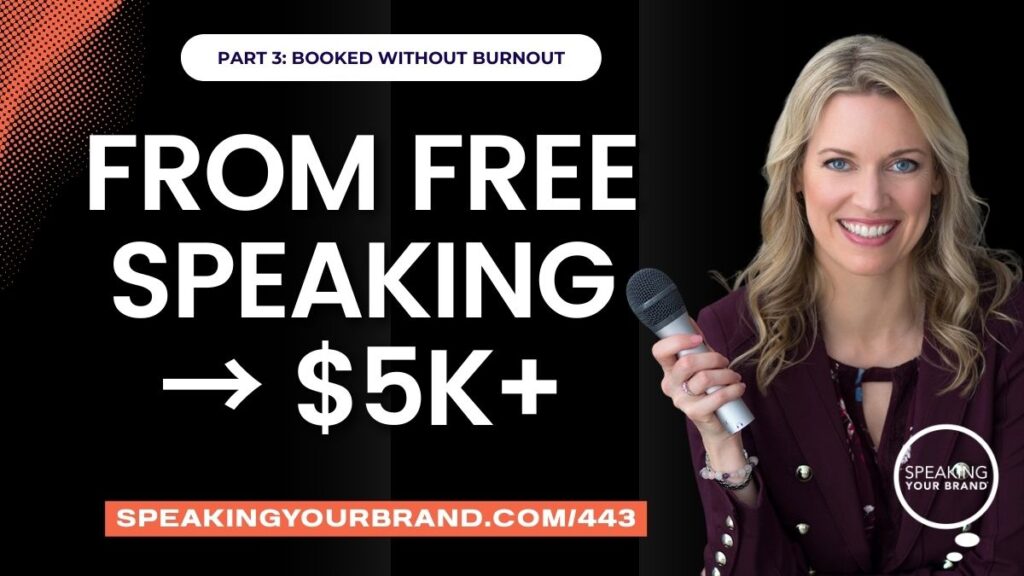232-SYB-Influencer-Expert-ThoughtLeader: this mp3 audio file was automatically transcribed by Sonix with the best speech-to-text algorithms. This transcript may contain errors.
Carol Cox:
Are you an influencer, an expert or a thought leader and which one is the best choice for you? Listen in as I talk about the differences between these three on this episode of the Speaking Your Brand podcast.
Carol Cox:
More and more women are making an impact by starting businesses, running for office, and speaking up for what matters. With my background as a TV political analyst, entrepreneur, and speaker, I interview and coach purpose-driven women to shape their brands, grow their companies, and become recognized as influencers in their field. This is Speaking Your Brand, your place to learn how to persuasively communicate your message to your audience.
Carol Cox:
Hi there and welcome to the Speaking Your Brand podcast. I’m your host, Carol Cox. I hope you’ve been enjoying the series we just wrapped up on this podcast called Speaking Prep. So we just had five episodes on everything from mistakes that speakers make that turn off their audiences to three speaking styles that you can use to what event organizers look for in speakers. So you can go back through your podcast app and find those episodes. Now we’re starting a new series all about thought leadership.
Carol Cox:
I was having a conversation recently with one of our clients, Betsy Jordyn, who was in our Thought Leader Academy earlier this year and is now in our Thought Leader Collective. And Betsy will be on this podcast in a couple of weeks. So we were talking about thought leaders and what it means to be one. And then we kind of pondered to each other, well, what’s the difference between an influencer and a thought leader and what’s the difference between being an expert and being a thought leader? So here’s today’s episode to answer that. And this is important because which one you choose, influencer, expert, or thought leader will determine the kind of content you create and where, what platforms, you should be spending your time and focus on.
Carol Cox:
Most likely, you’re currently in the expert category, which is great. So you have experience in what you do, maybe even your degrees, your certificates, your credentials are in the area of business that you run and you’ve been working with a lot of clients. And so that’s fantastic. But perhaps you want to develop into a thought leader and there’s definitely an overlap between being an expert and being a thought leader that you can leverage. And this is an important and there’s a critical difference between the two, between expert and thought leader, which I’ll talk about in this episode. And I also talk about why it can be hard to shift from expert to thought leader.
Carol Cox:
If you’re new to the podcast, welcome! At Speaking Your Brand, we help women entrepreneurs and professionals clarify their brand message and story, create their signature talks, and develop their thought leadership platforms. Our mission is to get more women in positions of influence and power because we know it through women’s stories and visibility that we challenge the status quo and change existing systems.
Carol Cox:
And hint, that’s exactly what thought leaders do. You can check out our coaching programs at speakingyourbrand.com. We work with our clients one-on-one any time during the year, as well as in our Thought Leader Academy, which will be enrolling again this September 2021. If you want to get on the interest list for that, go to speakingyourbrand.com/academy. Now, let’s get on with the show!
Carol Cox:
Let’s start with influencers. Influencers say to their audiences, “Be like me.” The examples that come to mind are like Kim Kardashian, Kylie Jenner, really all of the Kardashian-Jenner family, YouTubers. So lots of, you know, YouTube influencers out there. And in the online business world, I would say Marie Forleo, Amy Porterfield, they are really influencers. And here’s what they do. They build a really large following, really large audiences online, to sell products to. Sometimes it’s their own products, like Marie Forleo and Amy Porterfield sell their own programs. Sometimes for other companies and products, like Kim Kardashian will do a sponsorship, an ad for another company. I know Kylie Jenner created her own cosmetics line, but they are really building a large following to sell products to. So it’s mass audiences and mass market products.
Carol Cox:
The channels that they’re mostly on would be Instagram, YouTube and TikTok. So their content is a lot of photos. It’s a lot of videos, is very lifestyle focused and is very personality driven. So it’s aspirational. That’s where the “Be like me” comes from. When you see content from Kim Kardashian or even Marie Forleo or Amy Porterfield, a lot of people think to themselves, I want to be like them. I want to have the lifestyle that they have. I want to have the business that they have. And so how influencers monetize their businesses is through product sales. So, again, their own product sales or sometimes affiliate sales through other products, sponsorships and advertisements. So those are influencers. And for them, again, it’s mass audiences and mass market products.
Carol Cox:
The second category are experts and they say to their audiences, “Learn from me.” Examples that come to mind are Adam Grant, Cal Newport, Jim Collins, Susan Cain, Esther Perel, Carol Gilligan. So these are all writers. You may have read some of their books or have heard of them, and they all tend to be academics. So they have a background in the academy, a lot of them are still professors and they put out content, whether it’s books, TED talks, media articles for publications, articles for Harvard Business Review, because they’re experts in their particular topic. So they become very knowledgeable in a specific field. Again, a lot of times they have degrees and credentials related to that field and they become known as the go-to person for that topic. So Adam Grant is known for organizational development. Cal Newport has written books called Deep Work and his most recent one about email. So he’s very much known in that area. Jim Collins wrote Good to Great and the other books related to that. Susan Cain wrote the book Quiet about introverts. Carol Gilligan has written fantastic books about feminism, and Esther Perel is known for the work that she does around marriage and monogamy. And so the channels that they use are books number one, TED talks. They become also well known to more people through their TED talks, through media, TV segments, publications that they write for. They’re also pretty active on LinkedIn and Twitter. And how they monetize is through speaking, books, and consulting. A lot of them also do consulting or have some other business aspect that they do. And so what their content looks like is that it’s research-based work, research-based content based on their college degrees, based on their expertise, based on the research that they’ve done. And it’s really about what they know.
Carol Cox:
So what they have learned and then that learning that they want to pass on to their audiences and a lot of us fall into this category, myself and our clients. If you’re listening to this, most likely you fall into this category. Now, you may not have a specific degree related to what you’re doing now in your business. For example, my undergraduate and graduate degrees are in history and with a focus on women’s history and gender studies. So definitely related to what I do now in Speaking Your Brand, but not a direct one to one correlation. So your degree doesn’t necessarily have to be it. But you’re definitely an expert in the sense that you have a lot of experience and you can help other people along their journey in your area of expertise in the topic that you work in. So those are experts and they’re really about helping other people in that area learn from them.
Carol Cox:
Now, category number three are thought leaders and thought leaders say to their audiences, “Imagine with me.” So remember, influencers were “be like me.” Experts say, “learn from me.” Thought leaders say, “imagine with me.” Examples of thought leaders that come to mind are Brene Brown, Elizabeth Gilbert, Minda Harts, Monica Lewinsky, our client Tammy Lally, Lin-Manuel Miranda, the creator of Hamilton the musical, Isabel Wilkerson, who wrote the books Caste that recently came out, as well as her other book, The Warmth of Other Suns. Jenny O’Dell, who had a great book about doing nothing and resisting the attention economy. So what they do as thought leaders is they talk about ideas that precipitate change.
Carol Cox:
And here’s the thing that distinguishes them from experts. So a lot of them are experts in what they do. Brene Brown certainly is an expert in what she does. And her work is very much research-based. And here is the difference and why she’s a thought leader and not just an expert is because thought leaders put themselves into the story. Experts tend to maintain a professional distance, and that’s OK. That’s their choice to do that. Thought leaders put themselves into the story and the reason they become thought leaders is that they are public about having gone through the struggle, whatever struggle they’ve gone through. And they’ve emerged on the other side to lead other people through similar struggles. They share their lived experience, not just what they know. It’s really about heart as much as it is about what’s in their head. And it reminds me of an episode that we did a few months ago, episode 212 called Top Takeaways from Our Speaking Coaches and one of our coaches, Joy Spencer, she actually brought this up that the way that we define thought leadership at Speaking Your Brand and the work that we do with our clients is really as much about their heart and their story as it is about the knowledge that they have. And it’s really about bringing those two together and so forth.
Carol Cox:
Thought leaders, the channels that they’re active on are their books, TED talks, media again, TV segments, publications, LinkedIn and Twitter. So very similar channels to the experts. But they bring themselves into their message. They bring themselves into the work that they do in a way that experts don’t. They monetize through speaking, books, consulting again, very similar to experts. And so this is what their content looks like. They have a big idea. And then they add their personal story, their personal journey to it. They use their hard-won life wisdom to shape their thinking. It’s about what they’ve lived, not just what they know. Now, this is different from people who write memoirs. I’m thinking like a Glennon Doyle, she writes and she’s an incredible writer. I mean, you start reading her books and you are just captivated and you’re just sucked right in. So she is great with her personal stories, but she doesn’t have a central big idea. So I wouldn’t put Glennon Doyle in the category of thought leader, at least not based on the books that she’s written so far, because as a personal story, without a central big idea, you really need both to gather your big idea plus your personal story, your personal journey, you’re dancing with that idea together with your personal journey.
Carol Cox:
Now, as I mentioned in the intro, many of us who are experts can become thought leaders and it can be difficult for us to do it. And here’s why I believe it can be difficult. It’s because of how we perceive what is valuable to our clients and valuable to our audiences. Many of us provide trainings. We provide workshops. We provide strategies. We provide learnings to our clients and to our audiences. And that’s how we have categorized what is valuable. We tend to think that providing inspiration, playing with ideas, that those are less valuable or they can just feel fuzzier to us. It’s harder for us to kind of like hold on to them or harder to see how our clients and our audiences use that inspiration and use those ideas. And we actually had this conversation in our Thought Leader Collective group recently, which is where some of these ideas have come from. And I really see it that as an expert and if you identify as an expert, you have the answers. As a thought leader, it’s not about having answers. It’s about having questions. Just like a child asks “why” all the time: Why is the sky blue? Why is the grass green? As thought leaders, you’re asking “why” all the time. Why does our industry run like this? Why are these are best practices? Why does this go on? And then what needs to change and how can we make that change? And so as we shift our identity from expert to thought leader, we really have to have a solid understanding of our sense of self worth and where we get our validation from.
Carol Cox:
So these are some of the really impactful conversations we have with our clients in our Thought Leader Academy. And then the Thought Leader Collective, which is the monthly membership program that graduates of the Academy have an option to join once they’re done. And so if you would like to develop your own thought leadership and work on your signature talk, your visibility plan and more, we would love to talk to you about your big ideas and your own story and how you can use that to create an impactful signature talk and an impactful message. Our Thought Leader Academy is opening for enrollment again this September. You can get on the interest list by going to speakingyourbrand.com/academy again, speakingyourbrand.com/academy. You’re also welcome to schedule a consult call with us at any time. If you’re listening to this now and you want to chat with us and get a better sense of the academy and if it’s a great fit for you, we would happy to have a Zoom call with you. There is no pressure. We do not do a hard sales pitch. We will answer your questions honestly and we will let you know if we think the academy is the best fit for you and where you’re at right now. So you can schedule a consult call, go to the same page, speakingyourbrand.com/academy. There’s a box for you to add your email address for the interest list. And there’s also a button for you to schedule a consult call.
Carol Cox:
Let me share with you some feedback on why women have joined our Thought Leader Academy. So this is what they have told us to maybe give you a sense of if this is the right program for you. So they have said that they were drowning in content and ideas and wanted to manifest and needed help pinpointing the main idea and what to focus on and how. Also that they’ve known for a long time they were ready to step into their thought leadership, but something was holding them back and they needed a growth container to do that. And that’s exactly what we provide. We provide a trusted safe container for you to come together with the other women in the group and with us one-on-one, to work through your ideas and work through your stories and work through your message. We only have ten to twelve women in the academy, so you get a lot of hands-on attention and personalized feedback.
Carol Cox:
The other reason that women have joined is that they wanted something that was unique to them, that was signature to them. Many of the clients who come to us have been doing public speaking and they do presentations, they do trainings, but they’ve realized that their trainings and their presentations are a bit too sterile, that they’re trying to get through a lot of information, but they really want more of them into it. But they’re not really sure how to do it without it feeling self indulgent or without it just not fitting in right. And so this is exactly what we help them to do so again, go to speakingyourbrand.com/academy to get on the interest list and you can schedule a consult call with us.
Carol Cox:
In the next episode. I’m going to talk about three types of thought leaders. So in this episode we talked about influencers, experts, and thought leaders from the influencers are “be like me.” Experts are “learn from me” and thought leaders are “imagine with me.” Now within the thought leader space, I’ve identified three types of thought leaders based on what drives them, so I’ll be sharing that in next week’s episode. Be sure to hit subscribe or follow in your podcast app so you don’t miss that. And if you enjoyed this episode and have a friend or colleague who you think would enjoy it as well, send it to them. Also find me on social media, I’m mostly active on LinkedIn as well as Instagram and tag me there. Until next time, thanks for listening!
Sonix has many features that you’d love including transcribe multiple languages, advanced search, automated subtitles, world-class support, and easily transcribe your Zoom meetings. Try Sonix for free today.

